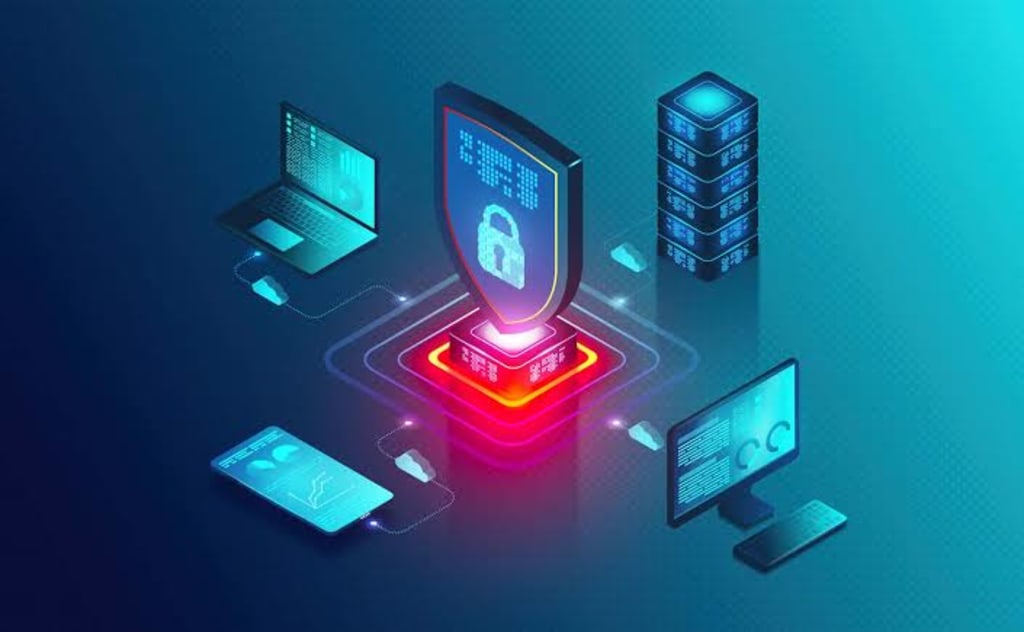Cybersecurity in the Age of Remote Work
Safeguarding Your Digital Identity

In today's digital age, remote work has become the new norm for many professionals. While it offers flexibility and convenience, it also brings forth a range of cybersecurity challenges that cannot be ignored. As we continue to navigate the landscape of remote work, it's crucial to understand the risks and take proactive steps to protect our digital identities. In this blog post, we will delve into the importance of cybersecurity in the age of remote work and provide practical tips to safeguard your online presence.
The Remote Work Revolution and Its Challenges
The rapid shift to remote work has provided numerous benefits, such as eliminating commuting time and expanding the talent pool for businesses. However, it has also opened the door to increased cyber threats. With employees accessing sensitive company data from various locations and devices, the risk of data breaches, phishing attacks, and unauthorized access has escalated.
Understanding Cybersecurity Threats
1. Phishing Attacks:Phishing remains one of the most common and effective cyberattacks. Attackers send seemingly legitimate emails or messages to trick individuals into sharing sensitive information or clicking on malicious links.
2. Ransomware: Ransomware attacks involve encrypting a user's data and demanding a ransom for its release. This can lead to significant financial loss and data compromise.
3. Unsecured Networks: Public Wi-Fi networks are often unsecured and can be easily exploited by hackers. When remote workers connect to these networks, they expose their devices to potential attacks.
Steps to Strengthen Your Digital Identity
1. Use Strong and Unique Passwords: Avoid using the same password for multiple accounts. Create complex passwords that combine uppercase and lowercase letters, numbers, and special characters. Consider using a password manager to keep track of your credentials securely.
2. Enable Two-Factor Authentication (2FA): 2FA adds an extra layer of security by requiring users to provide a second form of verification, such as a code sent to their mobile device, in addition to their password.
3. Update Software Regularly: Cybercriminals often exploit vulnerabilities in outdated software. Regularly update your operating system, applications, and antivirus software to stay protected.
4. Educate Yourself and Others: Stay informed about the latest cybersecurity threats and educate your colleagues and family members about best practices. Awareness is key to preventing social engineering attacks.
5. Secure Your Home Network: Set up a strong password for your home Wi-Fi network and consider using a virtual private network (VPN) to encrypt your internet connection, especially when working remotely.
6. Be Cautious with Emails and Links: Avoid clicking on suspicious links or downloading attachments from unknown sources. Verify the sender's email address and ensure the message is legitimate before taking any action.
7. Regularly Back Up Your Data: In the event of a ransomware attack or data breach, having recent backups of your important files can mitigate potential damage.
The Role of Employers in Remote Cybersecurity
Employers also play a critical role in ensuring the cybersecurity of their remote workforce:
1. Provide Cybersecurity Training: Offer regular training sessions on cybersecurity best practices. Educated employees are more likely to recognize and avoid potential threats.
2. Implement Security Policies: Establish clear guidelines for remote work cybersecurity, including the use of secure networks, approved devices, and safe data storage.
3. Use Secure Communication Tools: Encourage the use of encrypted communication tools for sensitive discussions to prevent unauthorized access.
Conclusion
As remote work continues to reshape the modern work landscape, prioritizing cybersecurity is no longer optional. By understanding the potential threats and implementing best practices, individuals and employers can work together to safeguard digital identities, protect sensitive information, and ensure a safe online environment. By staying vigilant and taking proactive steps, we can embrace the benefits of remote work without compromising our cybersecurity.
About the Creator
Enjoyed the story? Support the Creator.
Subscribe for free to receive all their stories in your feed. You could also pledge your support or give them a one-off tip, letting them know you appreciate their work.





Comments (1)
Overall, a timely and insightful guide for enhancing remote work security